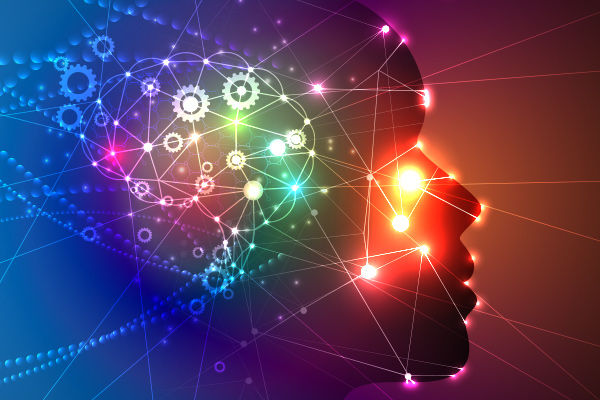Cognition
How Do We Become Who We Are?
Exploring emotions, cognition and language may help us better understand.
Posted March 25, 2019

Thomas Jefferson focused on the Romans—reason is the guide of life, while the senses, imagination, and affections are the basis of activity. John Adams, by contrast, noted that "reason holds the helm, but passions are the gales" (McCullough, 2001, p.241). In other words, Jefferson emphasized, "cognition," Adams "emotions" (affects). And both were brilliant with "language", connecting emotions and cognition and crucially conveying meaning.
The three gateways to understanding human development are emotions (affects), cognition, and language. These make up the foundation of development. They will be defined in more detail, but for the moment here are the basics.
- Affects refer to our feelings, our emotional life
- Cognition involves the processes of acquiring knowledge, perceiving, thinking, reasoning, and self-reflecting
- Language concerns symbolization and enhancement of communication and meaning
Complications and Enigmas
Development is complicated. It is not usually comprised of a linear maturational trajectory but is often chaotic and nonlinear—impacted by many intersecting variables, and often small issues can create large effects (Galatzer-Levy, 2004, 2017). Genetics (DNA, temperament) and psychodynamics (childhood antecedents, trauma, attachment issues, and more) interdigitate, the effects of which are often unpredictable.
Emotions, cognition, and language are information-processing systems—I call them "messy" systems. Our physical (eg, body and sexuality) and psychological aspects all run through emotions, cognition, and language. However, all three represent enigmas, puzzles, double-edged swords. They all have liabilities as well as assets.
For example, emotions are frequently mislabeled, misunderstood, unconscious as well as conscious. Cognition is often plagued by misperceptions and faulty memory. Just consider optical illusions or the studies of differences of eye-witness accounts. Language is readily marked by misinterpretation and misunderstanding. We all process stimuli through our own lenses and experiences.
Exploring the Foundations
How then to explore these "messy" foundations—emotions, cognition, and language? Might it be useful to examine them in two ways: at their origins, and as they interact with each other?
Examining the processes at their origins means discussing them at their earliest points, infancy and early childhood, using newer as well as more familiar information to appreciate their roles in human development.
Also, we are perhaps best served by investigating these processes not only individually but also as they combine with each other. The goal is to understand the influences of these three pathways upon each other as they emerge in development. In this way, we may be able to grasp new potentials as well as liabilities in our understanding of development.
Exploring emotions, cognition, and language—origins and combining—may allow us to understand their mechanisms of action and their potentials. We may then be able to understand human development better. We might also more effectively address some of the problems and possibilities which confront us, including:
- bias and prejudice
- education and learning
- physical punishment
- religion and religious extremism
- the need to be recognized and remembered
- early verbalization of feelings.
References
Galatzer-Levy RM (2004). Chaotic possibilities: Toward a new model of development. Int J Psychoanal 85: 419-441.
Galatzer-Levy RM (2017). Nonlinear Psychoanalysis: Notes from Forty Years of Chaos and Complexity Theory. New York: Routledge.
McCullough D (2001). John Adams. New York: Simon & Schuster Paperbacks.
Panksepp J (1998). Affective Neuroscience: The Foundation of Human and Animal Emotions. New York: Oxford University Press.
Solms M (2018). The scientific standing of psychoanalysis. Brit J Psychiatry International 15: 5-8.


